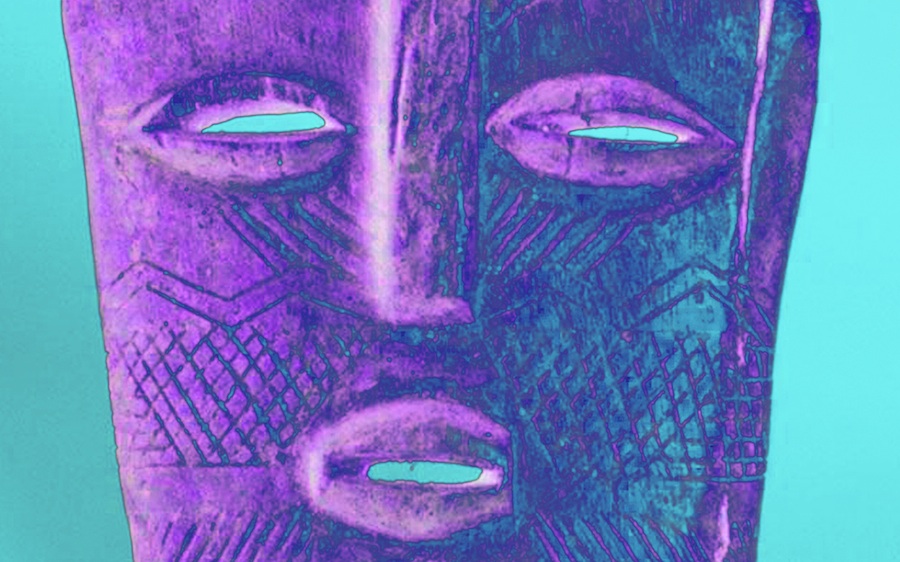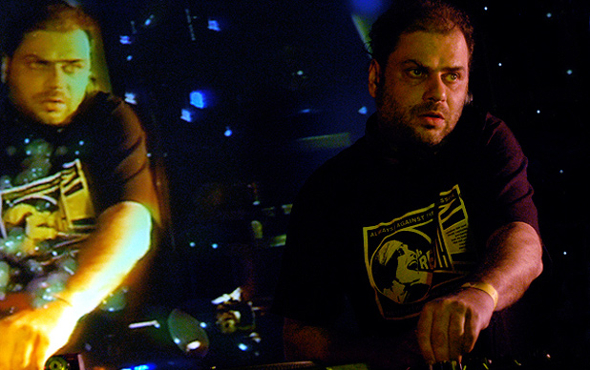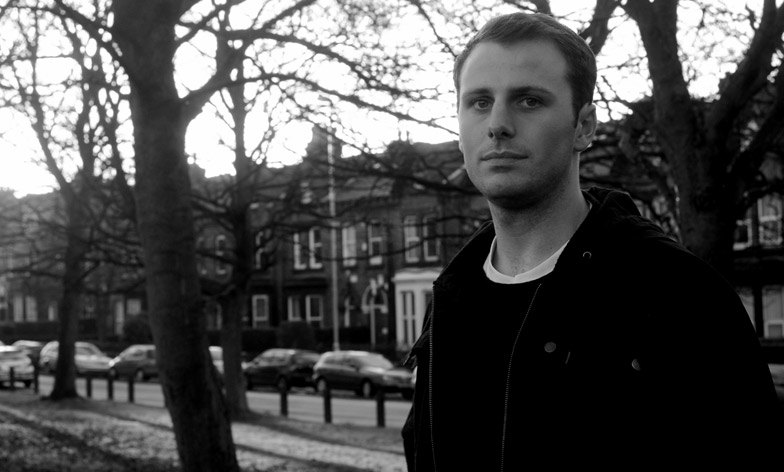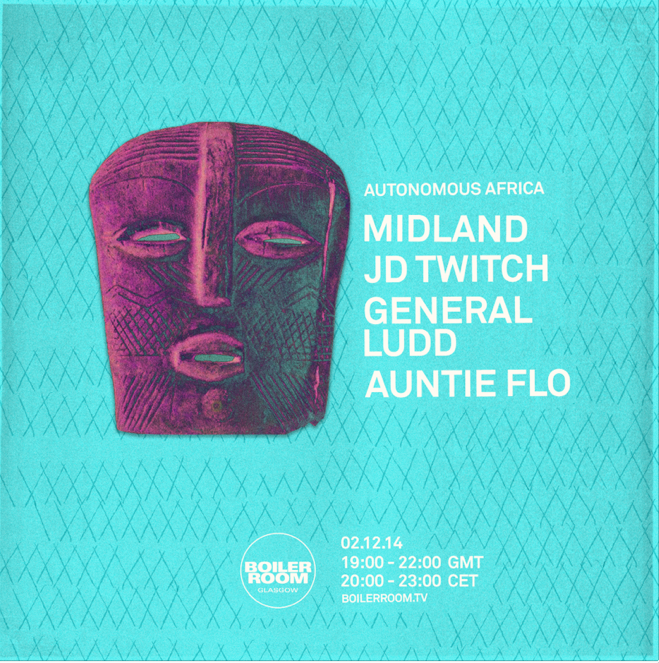
Dance music’s relationship with the world outside the club’s walls is often uneasy. After all, who wants the suffering and politics of an ever more complex society brought to mind when you’re kicking back with friends or achieving peak moments on the dancefloor? On the other hand, club culture has often emerged from marginalised or rebellious subcultures; and sometimes even proudly presented itself as a model of a better, more egalitarian world.
Aid to the developing world is an inherently political issue – as the recent dramatically mixed reactions to “Band Aid 30” have shown all too clearly. However, if there are two people in the music world who we can rely on to take a seriously-thought-out approach to the thorny problem, it’s Optimo‘s Keith “JD Twitch” McIvor, and Harry “Midland” Agius, the twin driving forces behind the Autonomous Africa programme.
Autonomous Africa releases and club nights have aimed not just to raise funds for and nebulous “awareness” of a specific part of the African continent, but to prompt discussion about the meaning and value of aid and whether social and political awareness have a place in our (sub)cultures. So, as our Autonomous Africa Boiler Room session approaches, we let the pair interrogate one another in an email exchange. They dig deep into what motivates them, what they feel they can do as musicians, and what they hope for in the future. Touching on Scottish independence, casual homophobia and gender roles as well as international relations and charity, they didn’t disappoint.
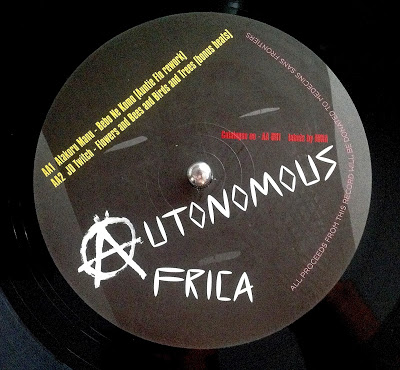
JD TWITCH: My biggest concerns were that nobody would care; that it would seem like an ill informed, naive thing to do and most of all that it would come across as preaching, which is the last thing I wanted to do. While it is hard to argue with the huge sums Geldof et al have raised for Africa, that kind of approach where hectoring and patronising people into donating takes precedence has made this an almost toxic area for anyone involved with music to get involved in.
So, the Autonomous Africa approach was simply to try to raise some funds and perhaps a bit of awareness through releasing a 12″ with no hype and very low expectations. It was easy to do, did not involve a huge amount of time to put together and ultimately was a very enjoyable endeavour. I put some of my thoughts about outside interference in African affairs on an insert that came with the first release but was not trying to ram my opinions down anyone’s throat but rather put some information out there that was perhaps new to some people and give them the opportunity to think about that or look into it further.
I’ve always had very strong convictions, but they remained fairly private until eventually I reached a point where it was just untenable to keep my opinions to myself.
I also wanted to stress that Africa is not some homogenous continent as it is often portrayed in the media but rather 47 very different countries all with their own unique stories and circumstances. I have no idea how successful that side of things has been but the project has raised far more money than I could ever have hoped for. A big part of that has been through various club promoters coming forward and offering to put on fund raising nights for AA.
The first release raised funds for Médecins Sans Frontières and then shortly after I hooked up with Harry [Midland] and found out that his parents funded a Trade School in Tanzania. It felt a little more personal to raise funds for something that there was now a direct connection to, so since then all the proceeds have gone to that. Maybe Harry can give a bit more background on the orphanage and his family’s involvement with that?
MIDLAND: In 1989 when I was three, my parents and our family moved back to Africa and upon returning they crossed paths with their previous House Girl, Anna, who started work for them again. In UK terms she acted as my nanny and general help about the house to my Mum who was a full time teacher. Her and her daughters Jossie and Lafsa were and still are part of our family. When I was 9 years old, Anna died of an AIDS related illness and my parents have looked after her daughters through their education ever since.
The Government school they went to was run by a Nun called Sister Barberina: a small, feisty and well respected woman within her community. As she reached the age of 55 she was asked by the school to retire and has since started a Trade School, the purpose of which is to give secondary education to orphaned girls and girls whose family can’t afford school fees. Through fundraising by my parents and the involvement of projects like Autonomous Africa what started as a single class room has grown in to a collection of three dormitories, class rooms, kitchen/dining rooms surrounded by fully irrigated farm land.
I fully understand peoples misgivings about blind western intervention in Africa, but for me this has always been a very personal and important part of my life. Orphans exist all over the world, in our own country too, and you would never begrudge them the chance to have a better life, so we cant do it in this situation. One of the first girls to come through the Trade School recently graduated from Coventry University with a Masters in International Law and Human rights and has set up her own practice in Dar-Es-Salaam, and now is able to make a difference in her own country – on her own terms.
House used to be a fringe sound with roots in gay and counter culture. It has become a mainstream entity which has, at times, forgotten about its roots.
I think people’s guard instantly goes up when a charitable or political narrative is attached to music, but some of the most interesting music does have narrative or subtext beyond the arrangement of the kick drum and the artwork. For instance DJ Sprinkles has approached this in her work on Midtown 120 Blues, which references the struggles of the LBGT community in the late 80’s in New York. Keith, recently you were involved in campaigning for Scottish independence. Obviously as part of Optimo, you had a fanbase who were listening – has a political and charitable narrative aways been a part of your role as DJ and musician or is it something that has developed over time?
JD: It is something that has developed over time. I’ve always had very strong convictions, but they remained fairly private until eventually I reached a point where it was just untenable to keep my opinions to myself. The Scottish referendum was a prime example of this and I came to the conclusion that it was important to disseminate information by any means possible as practically the entire media was lying to the people of Scotland. Now, questioning why anyone should pay any attention to what I have to say is very, valid but I wasn’t attempting to force an opinion on anyone but rather felt I was well enough informed on the issue to discuss what my thoughts were.
With Optimo we have always tried to be deeply rooted in our local community and when we ran the weekly club night we did many fundraising nights for local organisations. That is something we have started doing again and plan to do much more off in the future. I have 25 years experience of promoting nights and 20 years experience of releasing records so feel I know how to use that knowledge to raise funds (I have encountered so many fund raising endeavours that don’t actually raise any funds due to the inexperience of those putting them on).
We are so far off equality in dance music – that it is definitely a topic I’d like to see discussed a lot more.
I hope Autonomous Africa will be a long term project and I am thinking of ways it can develop to keep it interesting both for myself and also so that people will still want to be interested enough to keep on supporting it. I now can’t imagine a charitable and political narrative not being a part of what I do and if it turns out that that alienates people, so be it.
Dance music has a long history of conveying positive messages but these are usually distilled and diluted to fairly innocuous “come together” type lyrical tropes. I think that’s fine as the dancefloor is a way to temporarily escape the trials and routine of day to day life: it offers a pressure valve to many people and I think that is a positive thing. At the same time, I’ve long been interested in finding ways to push the parameters of what is possible in a club environment but I still don’t think it is necessarily desirable to try to bring a political narrative into the actual club environment.
However, within dance music in general, I do feel there is more room for discussion about slightly deeper issues than the tired old digital vs. analogue debate or discussing the ridiculous antics of the latest EDM superstar. There has been considerable deabte in recent times about gender inequality in dance music and I feel there is room for a lot more debate there. What are your thoughts on this Harry and is there anything that specifically relates to the dance world (or beyond) that you feel could be part of a broader dialogue within dance music?
M: There is no doubt that some of the best DJs operating in the world right now are women, from the more experimental regions of Lena Willikens and Helena Hauff to women like Tamo Sumo, The Black Madonna and Eli Verveine occupying a more classicist, but still “on the fringe” house sound.
Unfortunately, it is still very much a man’s world. I think the criteria by which female DJs are often judged is so different to that with which we judge men. I saw an interview with Annie Mac recently where she was addressing how almost every interview she has done has involved questions about what it feels like to be a woman and mother in Dance music, not hosting a radio show, or what her favourite clubs and soundsystems are.
The sad truth is that a lot of the time, they are being judged on their looks, their role as mothers first and then their music secondly. This isn’t to say that some female djs don’t use their looks in their favour, and why the hell shouldn’t they, male DJs are some of the most vain people around, but we very rarely judge their press shots on an aesthetic level.
I think this is the problem, a lot of the time for promoters, clubs and festivals its all about how they can market their guests and fill their spaces. DJs more than ever are being treated like celebrities when really they are no more important than anyone in the club. I feel like this is especially true in England and the US where house music seems to have boomed and opened up to a much younger audience. Where house used to be a fringe sound, with its roots in gay and counter culture it has become a mainstream entity which has at times forgotten about its roots.
I fully understand peoples misgivings about blind western intervention in Africa, but for me this has always been a very personal and important part of my life.
I recently played a gig, it was a young, more student based crowd and this guy came up to me with his phone, it read something along the lines of, ‘sorry for being so gay, but I love your music, and you are an inspiration to me, sorry again for the gay text’. He came up to me after and apologised for the display of emotion previously and again “for being so gay”. I stopped him and basically asked him where he thought the music he had danced to that night had originated from, and said that without the “gayness” he was so keen to distance himself from there would have been no music that night.
I guess in my long-winded way what I’m trying to say is that we should be trying to make dance music as inclusive as possible. We shouldn’t care what gender the DJ is or that there are guys making out in the crowd or that there’s a guy in a dress or girls with shaved heads, we should be celebrating it. One of my favourite quotes ever comes from Levon Vincent who distills what can and should be great about dance music in one perfect sentence: “For three hours a week rich people, poor people, black people, white people, gay people and everything else get together in the same room—and are equal—and that’s always been what I love about dance music”
JD: I echo harry’s sentiments here 100%. That Levon Vincent quote is perfect too. It’s something I wrestle with quite a lot in my head. Optimo Music has a mandate that 50% of the releases must feature women. I haven’t quite managed that – it’s about 45% – but it irks me that Optimo Trax has been almost 100% male releases (there have been two releases with a female vocalist). I also do a women-only DJ class in Glasgow to try to encourage more women to DJ or to try to give them the confidence to do it but we are so far off equality in dance music that it is definitely a topic I’d like to see discussed a lot more.
I now can’t imagine a charitable and political narrative not being a part of what I do and if it turns out that that alienates people, so be it.
